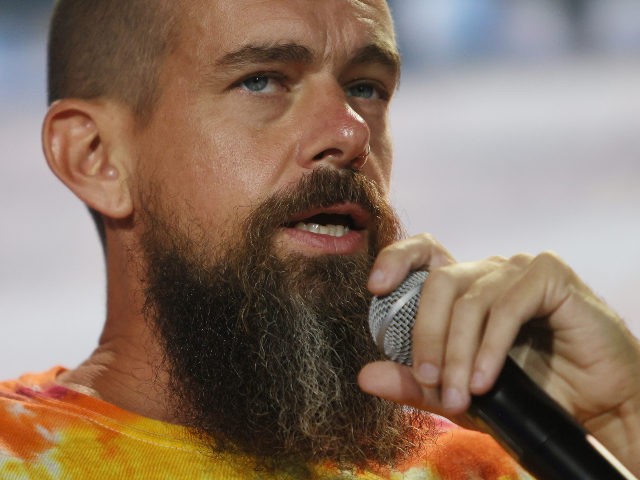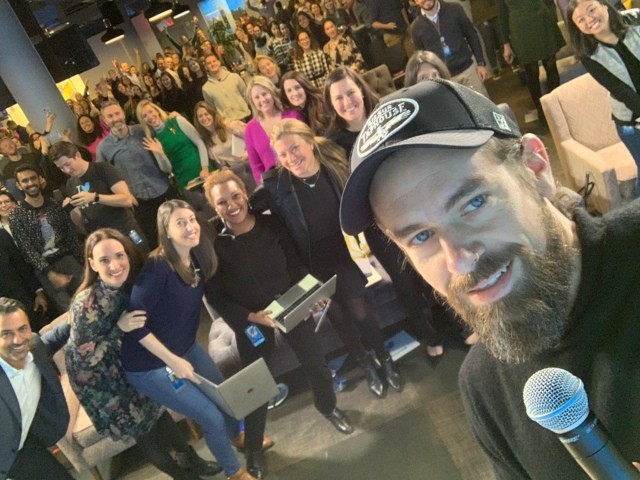Jack Dorsey has been talking a good game on the platform he co-founded recently, taking snipes at CNN’s Brian Stelter, criticizing the Twitter Board’s response to Elon Musk’s takeover attempt, and dropping hints that he actually, really, genuinely cared about free expression after all. It’s sad to see so many on the right taken in by it.
Perhaps because it’s been so effectively excluded from mainstream society, but the right has an unfortunate tendency to be a cheap date.
The slightest sign of dissent from an American Brahmin like Dorsey will have prominent conservatives fawning, overcome with the notion that a member of the elite might agree with perhaps two percent of their beliefs.
So it is with Jack Dorsey, the man who presided over the entirety of Twitter’s transformation from a free speech platform to an instrument of information control.
Dorsey — the friend of Black Lives Matter pioneer DeRay Mckesson, who marched on the streets of Ferguson with the movement that riots, loots, and burns the property of innocent Americans.
Dorsey, who did nothing to stop the suppression of the New York Post’s story on Hunter Biden (an act that probably cost Trump the election).
Dorsey, who did nothing to overturn the internationally condemned ban of a sitting United States president. In fact, he defended censoring Trump and he defended censoring former Breitbart News technology editor Milo Yiannopoulos.
All it takes is a few snarky posts in the mentions of a CNN reporter, and, for some on the right, all is forgiven!
The official account of the House Republicans was, to their credit, not taken in. The House GOP pressed Dorsey to give a more substantive explanation for his interference in the 2020 election, which the former Twitter CEO of course refused to do.
It’s true that Jack Dorsey wasn’t the driving force behind censorship at Twitter. As former employees of the platform have told this reporter, that came from the Orwellian Trust & Safety department. Many sources close to Dorsey have long said that he opposed some of the worst impulses of Twitter’s censorship department.
Well, whether he opposed them or not, he was clearly a massive failure.
There is a reason why CEOs are paid so much more than regular employees — everything that happens at a company is ultimately their responsibility. Dorsey cannot simply blame the Trust & Safety department, or blame the media, or blame the threat of boycotts from advertisers and celebrities, or from politicians and the media.
He had the power to stop the slide into censorship, and did nothing. He allowed Twitter to abuse its power to influence a presidential election. And he won’t even explain it!
Jack Dorsey is certainly no free speech hero. The best that can be said about him is that he is a free speech coward, or, if we’re being nicer, a free speech failure.
If Dorsey wanted to reverse Twitter’s slide into censorship, there were steps he could have taken. He could have adjusted Twitter’s business model to make it less dependent on ads. He could have adjusted Twitter’s algorithms to make people less interested in what boycott-prone progressive celebrities have to say.
Most importantly of all, he could have followed the example of Coinbase CEO Brian Armstrong, and instituted a total ban on political activism inside the company.
Armstrong’s move caused around five percent of the company’s employees to voluntarily resign — no doubt the most extreme, radical, and pro-censorship cohort, vastly improving the company’s future prospects.
Dorsey could have done all that. Had he done so, he would have called the bluff of a tiny, vocal, minority while winning the enduring respect of the public. It’s possible that the combination of pressure from every powerful institution in society, all demanding increased censorship, was too much for Dorsey to fight.
Platforms with far fewer resources, like Gab, have managed to stay operational and grow, even in the face of a total regime onslaught. But if Dorsey saw the challenges as too great to overcome, he could have simply resigned and focused full-time on Square. An abrupt resignation would have sent shockwaves through the company and the market. Instead, he waited until after the election, after the damage was done, and after seemingly doing nothing to stop it.
Jack Dorsey destroyed a wonderful platform and put his thumbs on the scale of a presidential election. If he wants to fix his reputation, he’ll have to do a lot more than mildly snark at Brian Stelter.
Allum Bokhari is the senior technology correspondent at Breitbart News. He is the author of #DELETED: Big Tech’s Battle to Erase the Trump Movement and Steal The Election.


COMMENTS
Please let us know if you're having issues with commenting.